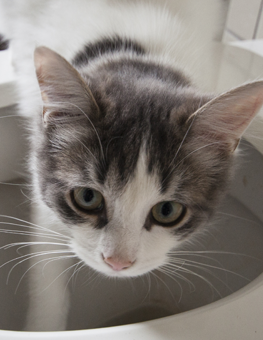How Did My Dog Get Fleas?
Fleas are some of the most difficult pests to get rid of, and can cause a great deal of stress and mess.
What Attracts Fleas?


Fleas in general will jump onto almost anything that passes near enough and they can jump very far.
Fleas have been around for a very long time, and have evolved genetically to be attracted to our furry friends and us. Fleas in general will jump onto almost anything that passes near enough to them and they can jump very far.
Fleas are attracted to different animals and are named for the predominant species they attach to such as the cat flea and the dog flea (Ctenocephalides felis and Ctenocephalides canis respectively); although cat fleas do attach to dogs. Humans also have their own genus of flea (Pulex irritans). Even squirrels have their own type of flea!
This does not mean that only one specific type of flea can infest a specific species of animal, fleas are opportunistic parasites after all, and free room and a blood meal are the most important thing to a flea. Mouthparts on fleas and most insects vary among species as their hosts have different kinds of fur and skin.
Adult fleas live 60 to 100 days and their lifecycle is about 30 days. This means that for every flea, at least two generations are produced which is a lot of reproduction over a very short period of time. Because fleas are so small, they are hard to see and often go undetected until the infestation is already out of control.
Removing Fleas
Fleas in a home are difficult to remove, but fleas are relatively easy to remove from our pets and there are many over the counter products available to remove active fleas. These include sprays, powders and shampoos which all can help remove and kill adult fleas. Some of these also kill flea eggs too.
Removal of the flea eggs is just as important as the live fleas, because eventually they will hatch and the cycle will start all over again. When it comes to a home with a flea infestation, flea bombs or professional pest control operators are often needed as they can live undetected in small cracks or crevices in floors and soft surfaces like carpeting.
Flea Prevention
Prevention of fleas is key: even on those sporadic warm days in winter, fleas are looking for hosts. Depending on where you live, year-round flea and tick prevention might be a good option for you. See your veterinarian about recommendations for flea and tick preventatives that are topical, collars or oral.
There are also some of these products available over the counter and with the guidance of a veterinarian you can decide which type of preventative will work best for you and your family. Topicals may not be appropriate for a household with young children and orals may not be a good idea for pets with allergies, so this can be a tricky area to navigate. Allow your veterinarian to help you and you will never have to give fleas a second thought.













